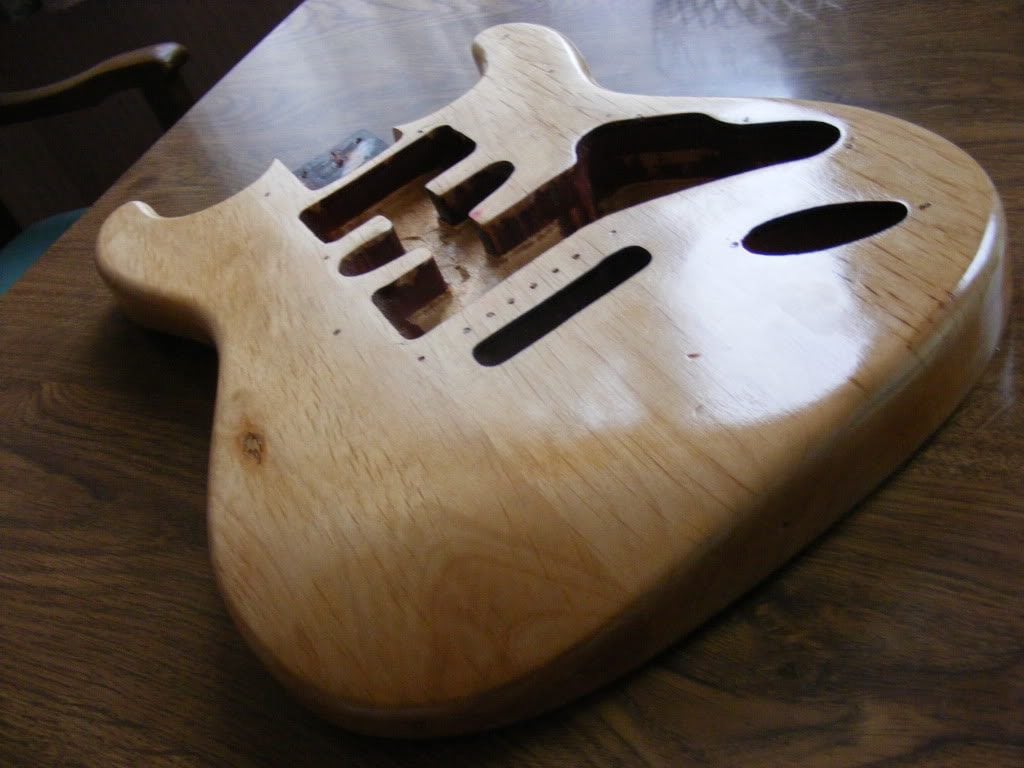Tonewood Does it make a difference in Electric Guitars
This is an attempt to question the validity of ‘Tonewood’ in electric guitars. Many will tell you that it doesn’t make any difference what the body of an electric guitar is made from. Others, generally those who want to sell you guitars want you to believe otherwise.
So I’ve taken a perfectly decent guitar and matched the the body with the most “tonally” bad piece of wood I had, a piece of chipboard kitchen worktop.
The results are fascinating, and not a good result for many folks involved with this big, and potentially expensive argument.
The concept of “tonewood” refers to the type of wood used in the construction of musical instruments, particularly stringed instruments like guitars, violins, and cellos. While tonewood is widely recognized for its impact on the sound of acoustic instruments, its significance in electric guitars is a subject of debate among musicians, luthiers, and audio engineers.
In the construction of electric guitars, the role of tonewood differs from that of acoustic instruments. Since electric guitars rely on pickups to amplify the vibrations of the strings rather than the natural resonance of the instrument body, the influence of tonewood on tone is less pronounced. However, some argue that tonewood can still affect the overall sound and feel of an electric guitar in subtle ways:
1. Sustain and Resonance: Although electric guitars primarily rely on pickups for amplification, the resonance and sustain of the instrument can still be influenced by the properties of the wood used in its construction. Some players believe that certain tonewoods, such as mahogany or maple, can contribute to longer sustain and enhanced resonance, resulting in a more lively and dynamic sound.
2. Weight and Comfort: The choice of tonewood can also affect the weight and ergonomics of an electric guitar, which can impact playability and comfort for the musician. Lighter woods like basswood or alder are often preferred for their comfortable weight, while denser woods like mahogany or ash may provide a more substantial feel.
3. Aesthetics and Feel: Beyond its acoustic properties, tonewood can also influence the visual aesthetics and tactile feel of an electric guitar. Different wood species have unique grain patterns, colors, and textures that contribute to the instrument’s overall appearance and feel. Many players appreciate the natural beauty and character of tonewood and may choose specific woods based on their aesthetic preferences.

While some players and luthiers swear by the importance of tonewood in electric guitars, others argue that factors such as pickup design, hardware, construction quality, and player technique have a greater impact on tone. Ultimately, the significance of tonewood in electric guitars is subjective and can vary depending on individual preferences, playing style, and musical context. As with any aspect of instrument design, it’s essential for players to experiment and find the combination of materials that best suits their needs and preferences.